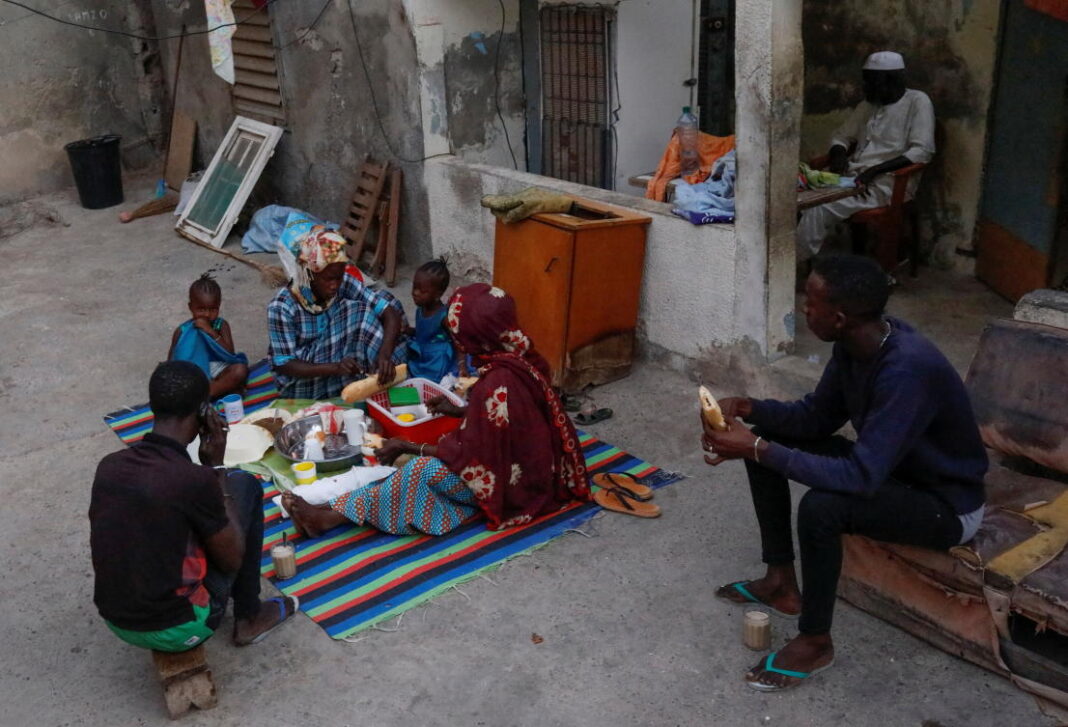DAKAR: There was no meat in the large silver bowl around which Astou Mandiang and her family gathered after breaking fast at nightfall in Senegal’s capital Dakar, where Muslims celebrating the holy month of Ramadan are feeling the pinch of inflation.
Food prices in West Africa have shot up by between 20 percent and 30 percent over the past five years, with drought and conflict pushing millions off farmland and stalling food production, aid agencies say.
At the same time, border closures during the pandemic have disrupted supply chains.
The war in Ukraine is likely to add even more pressure on Muslim households stocking up on food and beverage to cater for visiting family, neighbors and those in need.
“At the market there is a lack of food,” said Mandiang, stirring a simmering fish and tomato stew in a damp kitchen without electricity.
“Prices have soared and we return home without knowing what to cook,” said the 64-year-old, who scrapes a living by selling porridge on the side of the road.
Fish, cheaper than meat in the ocean-facing country, is now the only animal protein Mandiang can afford for her family.
She was grateful to have stocked up on onions, key to many traditional dishes, before increased demand during Ramadan further increased prices.
Most of the food traditionally consumed in Senegal, including the staple rice, is imported.
“We depend on external logistics,” Action Against Hunger regional representative Mamadou Diop told Reuters.
Economic sanctions against neighboring Mali over a military coup, for example, have increased the price of beef in Senegal because Malian livestock can no longer be sold across the border, he explained.
Charities that distribute food during Ramadan are struggling to fund their usual donations.
Scouring market stalls for the best deals, charity worker Astou Ndour said her organization would only be able to support 80 families this year, compared with 90 last Ramadan.
Cooking oil is 50 percent more expensive. The price of rice has risen by around 10 percent.
“When give us change we think they made a mistake,” said Mandiang. “They tell us the price has risen, and there is nothing we can do.”
Rising food costs hamper Senegal Ramadan traditions




